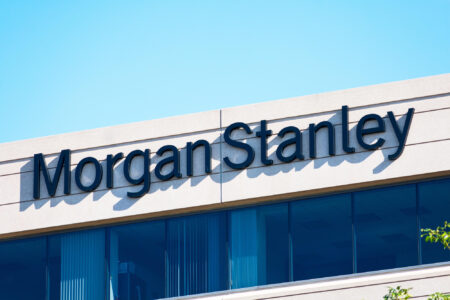What has been happening around Blockchain Technology and Cryptocurrencies this week? The most relevant local and international developments as well as appealing background reports in a pointed and compact way in retrospect in our weekly review.
This week Bitcoin once again made it into the headlines of traditional media. The reason was a Bitcoin investment of $1.5 billion by the car manufacturer Tesla. The amount invested represents about 8% of the company's total liquidity. The corporation also plans to consider precious metals such as gold and silver as a liquidity substitute in the future. The announcement came a few weeks after Elon Musk, Tesla founder and richest man in the world, called himself a "big Bitcoin advocate." Further, the company plans to accept Bitcoin as a means of payment in the future. With Tesla, a powerful company joins the circle of institutional Bitcoin investors. The decision is interpreted as a milestone for the establishment of the crypto-asset. The trend of incorporating Bitcoin into institutional liquidity management was initiated by business intelligence firm MicroStrategy in mid-2020. Its allocation, which now amounts to a good $3.3 billion, is equivalent to about one-third of the group's market capitalization.
Speaking of MicroStrategy, with its initial investment, CEO Michael Saylor became one of the biggest Bitcoin supporters. According to some sources, he was even the person who convinced Musk to make the previously mentioned decision. This week, he was hosting the "Bitcoin for Corporations" informational event. The event attracted a total of 8000 interested people from nearly 7000 companies who wanted to learn more about crypto adoption. MicroStrategy representatives explained their decision and shared their considerations in the digital event. Ultimately, Saylor is convinced that bitcoin will replace gold as a store of value. However, he insists that MicroStrategy is still a tech company and not a "bitcoin fund."
Particularly in Switzerland, a certain maturation process of the blockchain industry can be seen. Thanks to politics and regulation, the necessary legal certainty for a flourishing ecosystem around blockchain and cryptocurrencies was created early on. Thus, the term "Crypto Valley" was shaped in reference to the " Silicon Valley". Meanwhile, the ecosystem has advanced into various industries and also geographically, the Crypto Valley has grown far beyond the Zug area. But what is actually happening within the blockchain ecosystem? The "Crypto Valley Roundup" is intended to provide insight and highlights selected events every two months. With the turn of the year, the partial implementation of the new blockchain legislation represented another milestone in the regulation of the young technology. From now on, companies will be able to issue their shares on a blockchain. This fact has already been put into practice by some of the first "crypto-banks".
The emerging decentralized financial world (DeFi) is a dominant theme in the crypto-asset space, in addition to the increasing adoption of Bitcoin. This involves implementing digital financial services on the blockchain. The field is currently dominated with Ethereum-based applications (dApps). However, alternative blockchain networks are also advancing into the field. For the execution of so-called "smart contracts", some information from outside the respective blockchain network is required. So-called "oracles" come into play here. Oracles enable blockchains to access external data. Yves Longchamp shows how crucial this technology is. The pioneer in this area is the Chainlink project, whose LINK token is now in the "Top 10 Coins" by market capitalization.
In addition: Credit card company Mastercard announced that it will implement individual cryptocurrencies as a means of payment in its range of services this year. According to the company, there is no denying that digital assets are taking on an increasingly important role. In addition to some "crypto cards" enabled by a partner program, cryptocurrencies will also be implemented directly on the Mastercard network. However, the selection is to be limited to regulated stablecoins for the time being. Paying directly with Bitcoin (BTC) or Ether (ETH) will not be an option for the time being. As a result, some industry observers are questioning the point of the decision.
Selected articles in the weekly review:
Tesla is investing $1.5 billion (8% of its cash holdings) in Bitcoin and plans to accept the cryptocurrency as a means of payment in the future.
https://cryptovalleyjournal.com/hot-topics/news/tesla-invests-1-5-billion-in-bitcoin/
Tech company MicroStrategy is staying true to its beliefs. Last week, CEO Michael Saylor introduced Bitcoin to nearly 7000 different companies and shared his vision and strategy.
The Crypto Valley is considered to be one of the most "crypto-friendly" regions in the world. But what is actually happening within the blockchain ecosystem? The "Crypto Valley Roundup" highlights selected events in a bi-monthly cycle.
Oracles enable blockchains to access external data. Especially in the DeFi space, applications rely on these data sources. A detailed analysis of the technology.
Credit card company Mastercard wants to include cryptocurrencies in its range of services. However, the company is limiting its services to fully regulated stablecoins and CBDCs for the time being.
Mastercard Accepts Individual Crypto Currencies as a Means of Payment
Would you like to receive the Weekly review and other interesting formats via push message?




